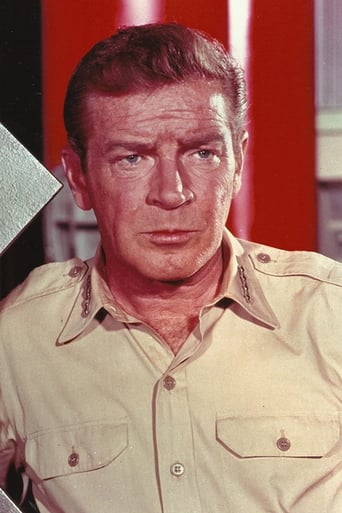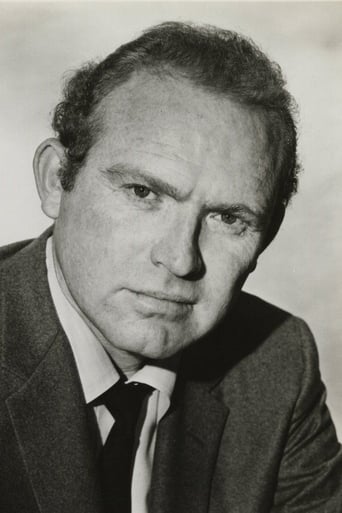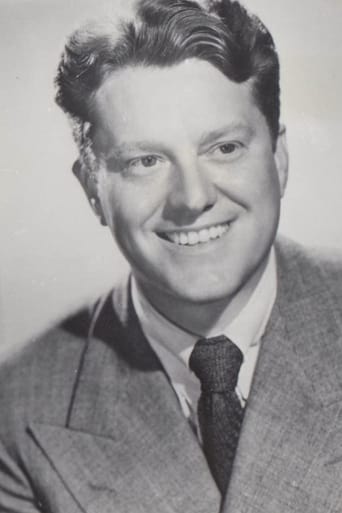Ensofter
Overrated and overhyped
Konterr
Brilliant and touching
Glucedee
It's hard to see any effort in the film. There's no comedy to speak of, no real drama and, worst of all.
Rosie Searle
It's the kind of movie you'll want to see a second time with someone who hasn't seen it yet, to remember what it was like to watch it for the first time.
robert-temple-1
Samuel Fuller had fought in the Second World War and put his field experience to good use in directing this low budget film set in Korea during the Korean War. The story is simple. A major general in charge of an American division is forced to order a tactical retreat of his division across the only existing bridge over a major river, which he will then blow up behind him. In order to avoid the enemy massacring his 15,000 troops as they slowly make their way across that choke-point, the general decides to leave a small platoon of 48 soldiers behind, commanded only by a lieutenant, to make a lot of noise and fire a lot of weapons so that the enemy will not know for some time that the division has pulled out. This platoon, known as a 'rear guard', will thus buy time for the division, and then they can follow after a certain number of days, if they can. The action is set in the snow-covered and freezing mountain environment of that terrible war. (A friend who fought in it told me the worst thing was the cold, far worse than the fighting.) The action of the film is thus circumscribed within this narrow story, in a small mountain pass where 48 men face an entire enemy division complete with artillery. Richard Basehart plays a corporal who, as fourth in line of command, ends up becoming the commander of the platoon when the three men outranking him are all killed. He has an inner struggle about responsibility, and that part of the film is a psychological profile of a man who fears command and also cannot bring himself to fire a gun at another human being. So Fuller is driving home some important truths about what war really involves, namely killing people (a point often forgotten by politicians in their bubbles!) There is a tense scene where Basehart has to walk into a minefield to rescue someone, trying to feel gently through the snow with his boots where the mines might be. (The medic who had proceeded him in this effort had already been blown up by a mine.) I had a friend named Michael Scott who during the Second World War went into a minefield to save his friend Carlos Blacker, and lost an eye, so I have heard some first-hand accounts of this tricky subject. Early on in the film, when the enemy are firing artillery at the platoon, they blast away at a cliff and a rock-fall reveals a handy cave, in which the platoon is able to shelter from the cannon fire. I winced as I saw the soldiers knocking the stalagtites down inside the cave, despite one of the soldiers saying it had taken 2000 years for them to form. I know it was only a set, but the idea of damaged stalagtites offends my geological sense of the proprieties. This film was 'suggested by' a novel by the British author John Brophy. Brophy was from Liverpool, who also wrote a novel and screenplay for the film entitled WATERFRONT (1950), which tells a tragic tale of the Liverpool slums, from which Brophy presumably came himself. There is some good acting and a lot of grit in this simple war film, which concentrates on this small body of men and their struggle against the odds. The film has been restored and included in the 'Maters of Cinema' series on Blu-Ray, as part of the current revival of the films of Samuel Fuller, whose PICKUP ON SOUTH STREET (1953) is probably his best known film. I need hardly point out that 'fixed bayonets' refers to the time when close combat is at hand, and soldiers have to fix bayonets to the ends of their rifles to defend themselves against the enemy, as firing is no longer possible because the enemy is only a few feet away. Bayonet fighting is probably every soldier's worst nightmare, and it is not much different from what warfare was like a thousand years ago, i.e., two men struggling against each other to the death with only sharp blades to decide who lives and who dies. Makes you want to join the army, doesn't it?
Michael_Elliott
Fixed Bayonets! (1951)** 1/2 (out of 4) Well made Korean war film shares some similarities with Fuller's THE STEEL HELMET released the same year. In this film a group of American soldiers get held up along a mountain pass where they must try and stop advancing Korean soldiers. The main goal is to be smart and try to make the Koreans think they have a large group of people when in reality there's only forty-eight. This isn't the greatest war film ever made and I'd put it a few notches behind THE STEEL HELMET but fans of Fuller will still want to check this out as his style is all over this thing. I think the greatest thing about the film is certainly the direction as Fuller really makes a great atmosphere and a very claustrophobic one at that. The men are constantly being shown one on top of the other and the tight cinematography really makes you feel as if you're sitting along side the men and after a while you really begin to feel things getting tighter and tighter as the suspense builds up. One of the best sequences in the film is when a land mine, buried in the snow, traps one of the men and another soldier must walk to him, never knowing when he might step on one of the mines. This entire sequence is full of great suspense and it's doubtful you'll forget it once you see it. The cast includes good performances from Richard Basehart, Gene Evans and Michael O'Shea as well as a very brief appearance from an uncredited James Dean. I think the film's one major flaw is that some of the dialogue is extremely weak and many of the dialogue sequences just aren't strong enough to stand up to the action sequences. I think there were way too many short sentences and in the long run the dialogue just wasn't strong enough to carry the film.
drharper
And I am afraid that I cannot imagine why. It really is a genuinely dire and exceptionally boring film. In some ways it is reminiscent of early science fiction when every set had been knocked up on a Hollywood back lot out of whatever was lying around. From the minuscule and unconvincing set (snipers seem to be about ten meters away) apparently made of plaster, to the actors who are also apparently made of plaster with "amusing" stereotypes painted thinly on top, to the oddly warm pool in a frozen cave, to the survival of the cast uninjured when medium artillery shells burst a few meters away on open ground, and finally the awful script that reads like a training manual more than a film.... I really cannot say how dull this is. Even the opportunity to see whether the young James Dean survived wasn't enough to keep me watching for more than an hour. This really is one to be avoided at ALL costs.
tieman64
Sam Fuller's no nonsense approach to film-making seemed perfectly suited to the war genre. Films like "Fixed Bayonets", "The Steel Helmet" and "Big Red One" have a certain relentless quality. They're fast, tough, blunt, feature urgent camera work and screenplays which whittle away the fat and get right down to the point. There's no macho heroism, no flag waving, no mourning the dead. Instead, Fuller cuts through the crap and gets down to simple truths.Indeed, Gene Evans, who plays Sgt Rock in "Fixed Bayonets!" and Sgt Zack in "The Steel Helmet", seems to himself embody Fuller's style. He's simple, bear-like, gruff, angry, world weary, cynical, yet wise and at times warm. He's the product of a post-Hemmingway era of pulp journalism and spring-action typewriters. Fuller's style itself relies more on punchy dialogue, the rhythm of words, the staccato patter of syllables and the energy of screenplays to create their power. Visuals were almost secondary. Strange then that "Fixed Bayonets", plot wise at least, is so simple. It deals with a group of US soldiers who attempt to hold a mountain pass while the North Korean army advances. Their aim is to convince the enemy that their small 48 man squad is much larger than it really appears. If they succeed, they'd have provided enough of a distraction for a 15,000 man US regiment to pull out of the area, unharassed.This notion of "pretending", of being "more of a man" than you really are, is Fuller's chief concern. And so throughout the film characters wrestle over, not duty, but responsibility. How can one little man step up and take on the responsibility for the lives of other men? The rest of the film plays like a tactical handbook on how to hold a secure location. Fuller shows us how to lay mines, sucker the enemy in, keep your feet safe from frostbite and take down a tank. There's an almost journalistic sort of attention to detail, which of course masks the films politics; its refusal to approach the broader ethical questions raised by US actions in Korea at the time. 7.9/10 - Plays like one of those pulpy combat comic books printed in the 40s and 50s.







